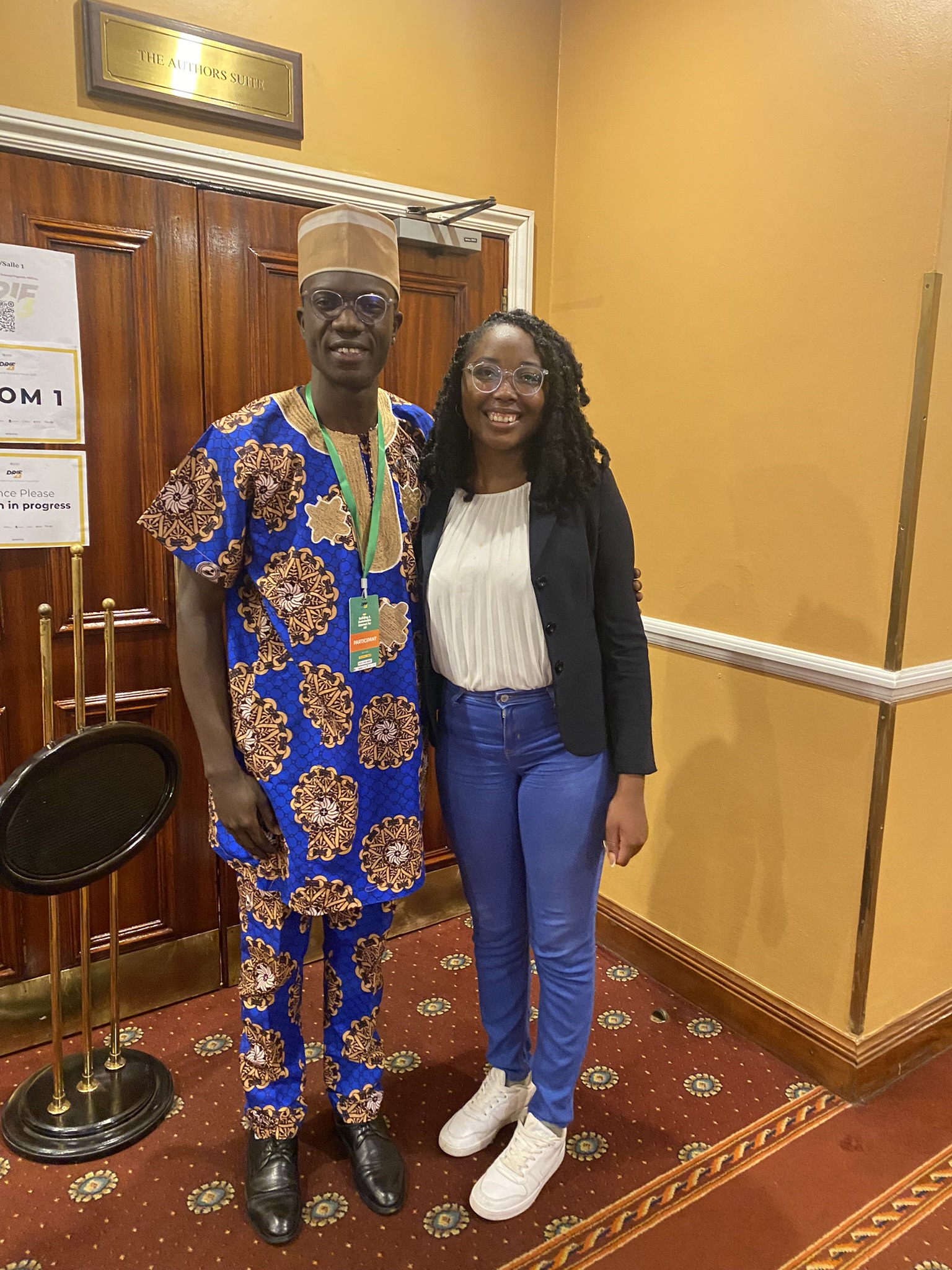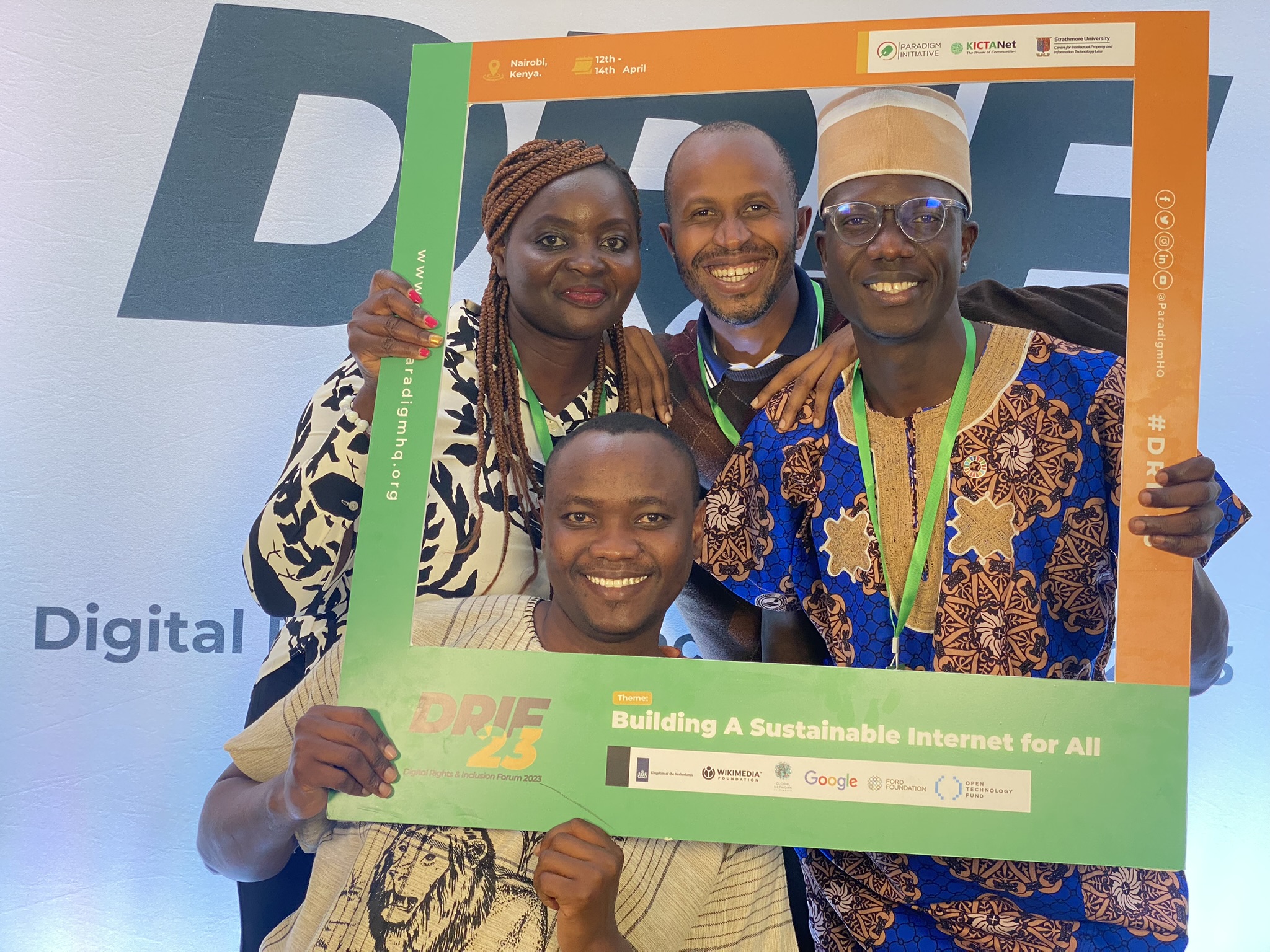Building Sustainable Internet for All: Libraries Engage at the Digital Rights and Inclusion Forum 2023
18 April 2023
IFLA was represented at the Digital Rights and Inclusion Forum, held in Nairobi, Kenya, on 12-14 April, joining with stakeholders from across Africa to underline how libraries can deliver equity in the online world. We are grateful to Damilare Oyedele for the below report.

Globally, libraries have been at the forefront of providing equitable access to information through our spaces. Over time, libraries have evolved with the demands of our community, heavily adopting digital technologies to offer library service delivery.
In Nairobi from 12 to 14 April, Damilare Oyedele, Co-Founder and Chief Executive of Library Aid Africa, who also serves on the International Federation of Library Associations and Institutions Sub-Saharan African Regional Division Committee participated in sessions, dialogues and speaking engagements with digital ecosystem stakeholders at the Digital Rights and Inclusion Forum 2023 by Paradigm Initiative.
While attending the forum, Damilare pointed out the essential roles of libraries as spaces to foster inclusive digital rights for people of all ages and categories, with sustainability as the key.
Through a panel discussion on Building emergency networks to serve the communication needs of communities affected by crises, he shared experience of working with institutions that offer access to connectivity as part of their core focus and also at the forefront of equitable and inclusive digital access for all, such as libraries.
Reiterating libraries’ function as a community hub to access information and knowledge, he further pointed out that existing libraries have the digital infrastructure for community outreach services, which can be harnessed as an immediate solution to provide connectivity during and after critical times.
He further noted that the libraries go beyond connecting people to the Internet and access to digital services and tools, and also includes the services provided by teams of professionals, expertise, and resources –books and information that we need to build back better. In turn, informed communities are therefore empowered and equipped to take actions that will influence their current situation.
 With libraries’ role relying heavily on digital technology to serve our communities, and in particular, people with disabilities, marginalized and vulnerable groups, it is important to explore a collaborative approach with digital industry leaders, organizations, institutions, and government agencies to harness policy, capacity, intervention, funding, and investments that will enable libraries to thrive in the digital ecosystems.
With libraries’ role relying heavily on digital technology to serve our communities, and in particular, people with disabilities, marginalized and vulnerable groups, it is important to explore a collaborative approach with digital industry leaders, organizations, institutions, and government agencies to harness policy, capacity, intervention, funding, and investments that will enable libraries to thrive in the digital ecosystems.
#DRIF23 also featured the launch of the LONDA 2022, which highlights the interconnected concerns that impacted digital rights and the freedom of the Internet in the year 2022. In addition, it assesses how effective Universal Service Funds have been in 24 countries with key recommendations for various parties, such as businesses, non-governmental organizations, governments, the media, and academic institutions.
Libraries are open to cross-pollinating ideas and innovating to continuously serve our communities through digital platforms and services and build a sustainable internet for all. We look forward to working with partners to take things further.